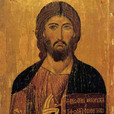
Summary: This episode is titled – The Great Recession.I usually leave house-keeping comments for CS to the end of each episode but wanted to begin this by saying thanks to all who subscribe, listen regularly, and have turned others on to the podcast.Website stats tell us we have a lot of visitors & subscribers. Far more than you faithful ones who’ve checked in on the Facebook page & hit the “like” button. Can I ask those of you who haven’t yet to do so?Then, if you’re one of the many who accesses the podcast via iTunes, you probably know how difficult it can be to find what you’re looking for there. Millions use iTunes as their podcast portal yet the search feature is clunky. So tracking down what you want can be a challenge. What helps people find content on iTunes is reviews. So, if you’re an iTunes user and like CS, you could be a great asset by writing a brief review for the podcast. Thanks ahead of time.Okay, enough shameless self-promotion . . .Christianity more than proved its vitality by enduring waves of persecution prior to Constantine the Great. When persecution was withdrawn & the Faith climbed out of the catacombs to become the darling of the State, the question was whether it would survive the corruption political power inevitably brings. While many thousands of pagans professed faith because it was the politically expedient thing to do, some sincere believers marked the moral corruption that took place in the church & forsook society to practice a purer faith in monasteries, as we saw in our last episode.The institutional Church, on the other hand, organized itself in a manner that resembled the old Roman Imperial system. When the Empire crumbled under the weight of its own corruption, that fall accelerated by barbarian invasions, the question was, would Christianity fall with it?The story of Christianity in the West is a remarkable tale of survival. So often in history, when a culture is swept away, so is its religion. Christianity has proven an exception. As often as not it endured when the culture changed. Such was the case in Europe and the events that followed the Fall of Rome at the end of the 5th Century.When the Gospel first came to those urban centers which were the cultural heart of the Roman Empire in the late 1st & early 2nd Centuries, it was regarded as a Jewish reform movement. Its first converts were Jews scattered around the Empire and those Gentiles who’d attached themselves to the Jewish synagogues. But once these God-fearing Gentiles came to faith, they evangelized their Gentile friends. Following Paul’s example in speaking to the philosophers on Mars Hill, these Gentile Christians recast the Gospel in Greco-Roman terms, using ideas & values familiar to the pagan mind.When I say “pagan” don’t think of it as the insult it is in our modern vernacular; someone void of moral virtue. By pagan, I mean those who practiced the religion of the Greeks & Romans with its pantheon of gods. In that sense, Plato & Aristotle were pagans. Zeno, the philosopher who developed Stoicism, was a pagan. These were all men who developed the philosophical framework that shaped the worldview of Greco-Roman culture & society. They asked some penetrating questions that provided the intellectual backdrop of the 1st & 2nd Centuries. Gentile Christians picked up these questions & used them to say they’d found their answers in Christ. Many other pagans found these arguments convincing & were won to faith. Some of the Early Church Fathers even appealed to the ancient philosophers in the formal letters they wrote to the Emperors on why persecution of Christians was bad policy. They argued for a promotion of the Faith as a boon to the health of culture, not a harm to it. Their defense of the Faith was couched in terms the Emperors were familiar with because they shared the same philosophical language.My point here is that Christianity made an appeal
